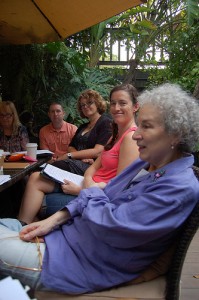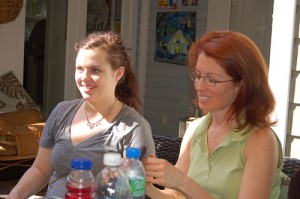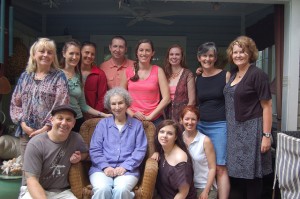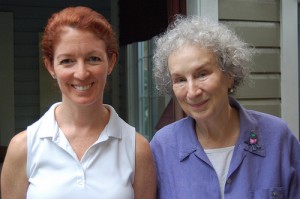‘The Handmaid’s Tale’ Hulu Redux
This week I watched the season finale of ‘The Handmaid’s Tale’ on Hulu, which is a surprisingly fresh take on the classic novel by Margaret Atwood. The first season—and I was pleased to read it has been renewed for a second season—begins and ends in sync with the events of the book, leaving its viewers at that same moment of uncertain outcome for Offred, the handmaid from whose perspective the story is told, but with the resonance of hope that change is afoot in the totalitarian regime of Gilead, which subjugates women under its own Western evangelical version of extremist sharia law.
Having loved the novel for its language as much as the story, I was unsure whether I’d be drawn in to the series when it first aired. Elizabeth Moss plays Offred in a manner that was different than I’d imagined her in my reading, so it took me a few episodes to adjust to that difference. What excites me is that Ms. Atwood is a consulting producer and was extensively involved in developing this project for television. The series storyline is true to the novel, but expands upon it and modernizes it in ways that feel natural and not at all like a departure from the book, but rather a deepening of it. I watched knowing that—as the plot revealed new information or background about the characters and events—it reflected an enlarged vision of this world endorsed its author, and as such was not just the committee-creation of a roundtable of writers (no offense meant to television writers, who produce a lot of amazing content for us to enjoy). Hulu’s remake of this classic story feels both familiar and true to the book, while at the same time refreshingly new and exciting.
And so I’m looking forward to season two like a fan girl who finally gets to read the sequel to a beloved book over 30 years after its original publication, except that this sequel is being formatted for television.







Recent Comments